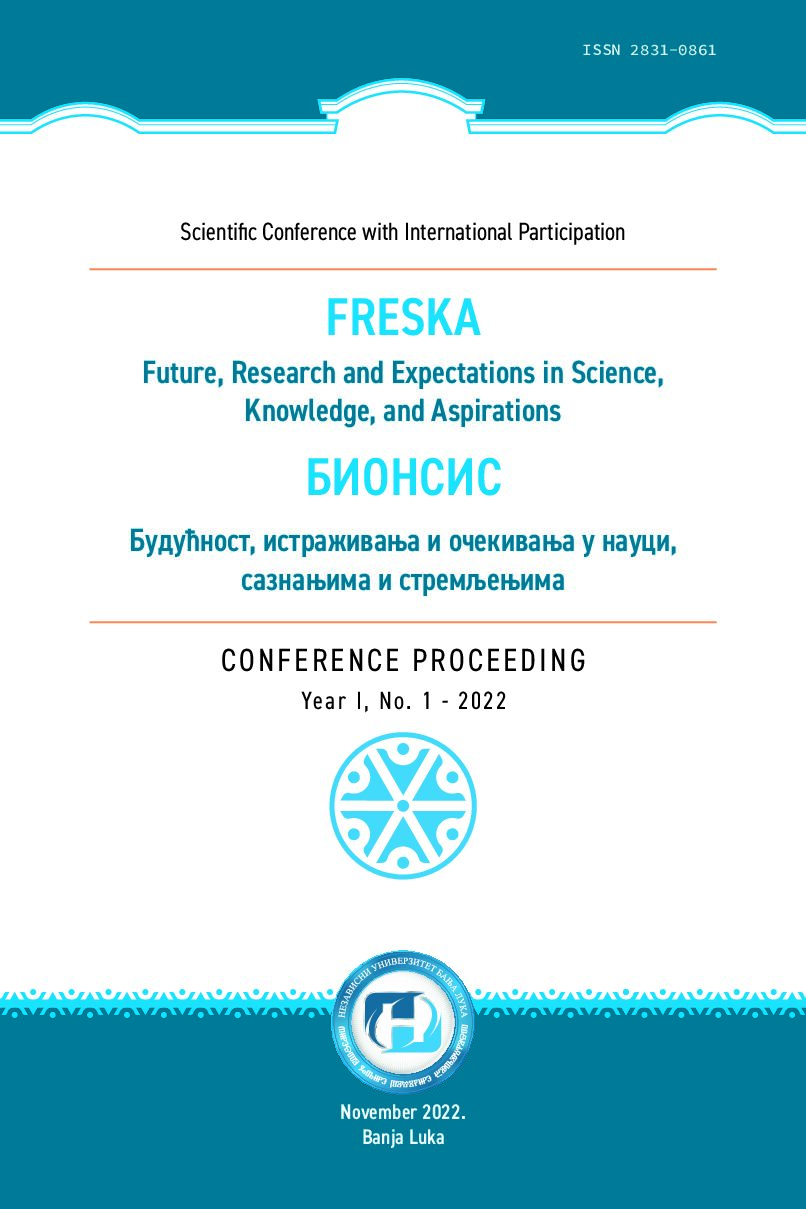THE ROLE OF UBUNTU IN SOUTH AFRICA’S FOREIGN POLICY
DOI:
https://doi.org/10.7251/ZNUBL2201197EAbstract
This article focuses on the role of Ubuntu in South Africa’s foreign policy. Since independence, African intellectuals have tried to develop their own strategies and approaches to solve problems on the continent. These ideas were aimed at rescuing the African younger generation from enslavement by Western culture, to invent new approaches and to reanimate traditional concepts that would contribute not only to the revival but also to the protection of African culture. They were designed to promote traditional values both within the African continent and globally, to be the antithesis of Eurocentrism, to carve new Afrocentric ideas from their own historical experience and current conditions, socio-economic priorities, with African interests at their center. Among modern concepts aimed at protecting Africans and promoting the African position on the global arena is the traditional philosophical system
of Ubuntu. It is the ideas of Ubuntu that have been adopted by South African politicians back in the late 90s and formed the basis of South Africa’s foreign and domestic policy. In 2011, the White Paper “Building a Better World: Ubuntu Diplomacy” was published, proclaiming the promotion of a multipolar, just and equitable world order and the desire for development and prosperity in Africa as one of its main theses. South Africa was the first state of the continent to base its foreign policy document on one of the main codes of African identity: Ubuntu. This gave the foreign policy document an African character.The Republic of South Africa presents a unique example of an attempt to implement into state strategy a philosophical concept that is a defining element of African identity, a significant part of the traditional culture for more than 350 million people living almost all over sub-Saharan Africa. The notion of Ubuntu is also reflected in the state documents of the Congo, the Republic of Chad, Uganda, as well as Kenya (harambei). By promoting the Ubuntu philosophy, South Africa claims the existence of African values, spreading their importance in the international space through various instruments of public diplomacy. Various magazines, radio stations and a national Ubuntu Awards have been created. All these tools are aimed at informing and sensitizing the public about South Africa’s foreign policy, promoting a multipolar world and establishing an alternative model to the Western
system of individualism.
